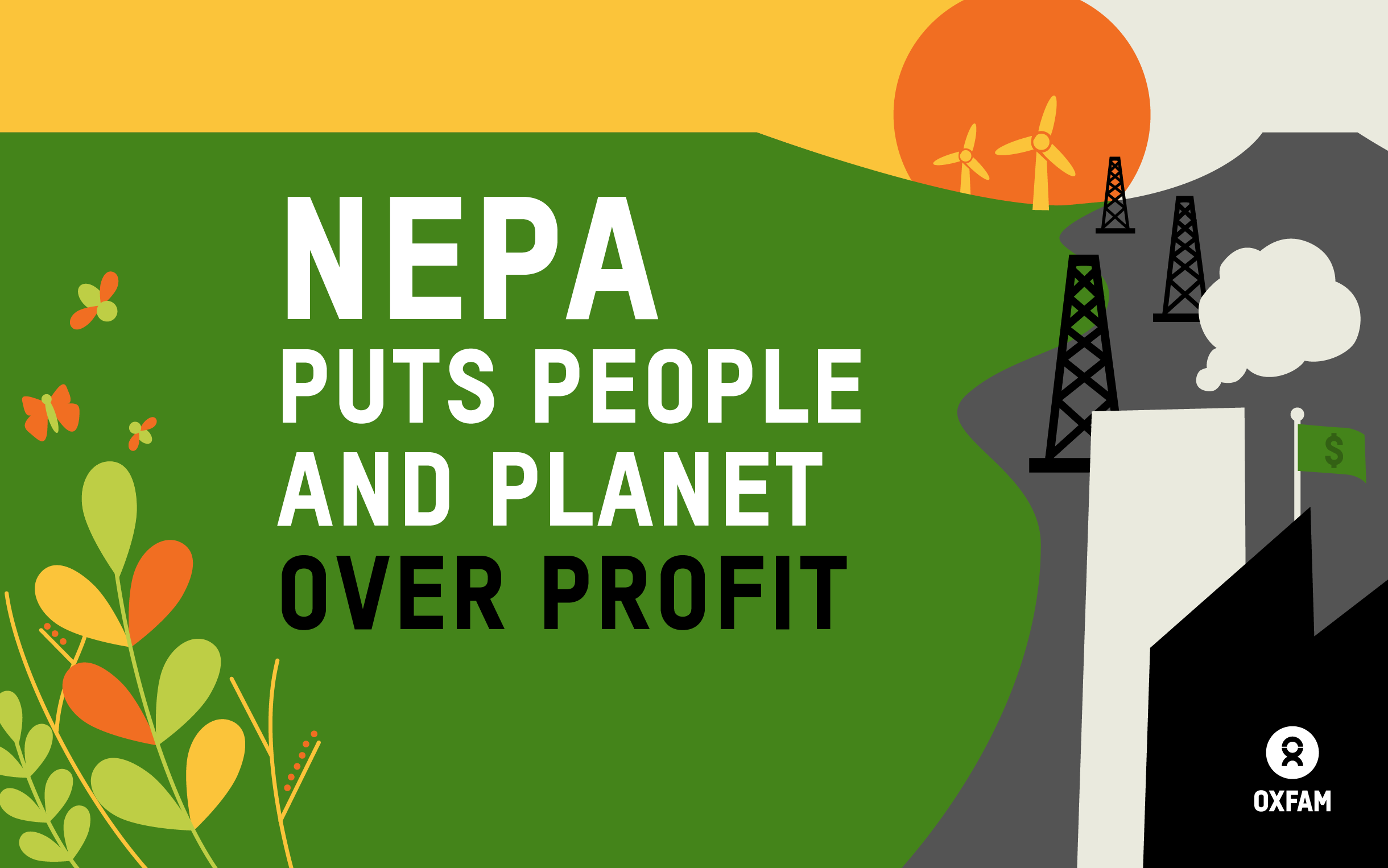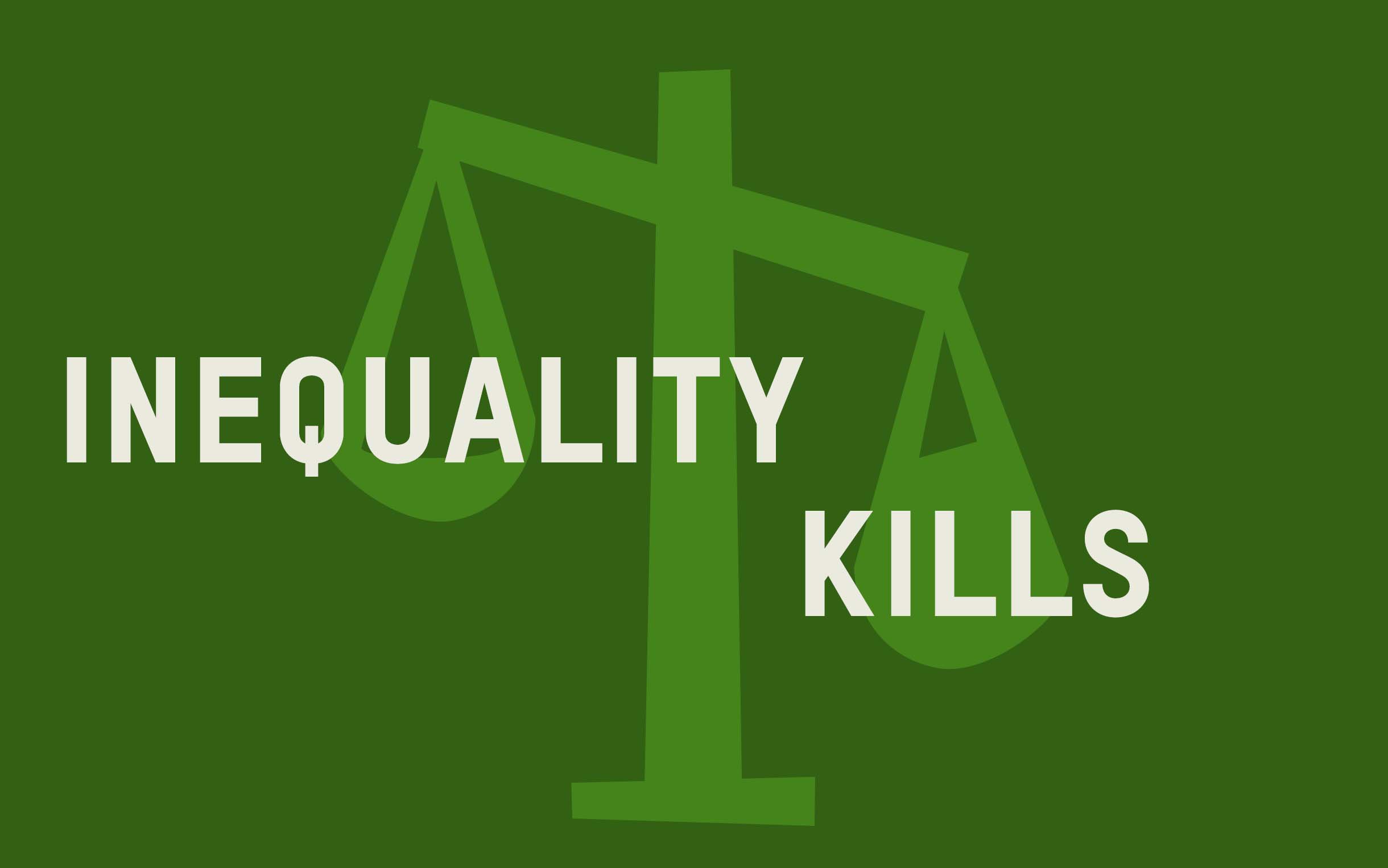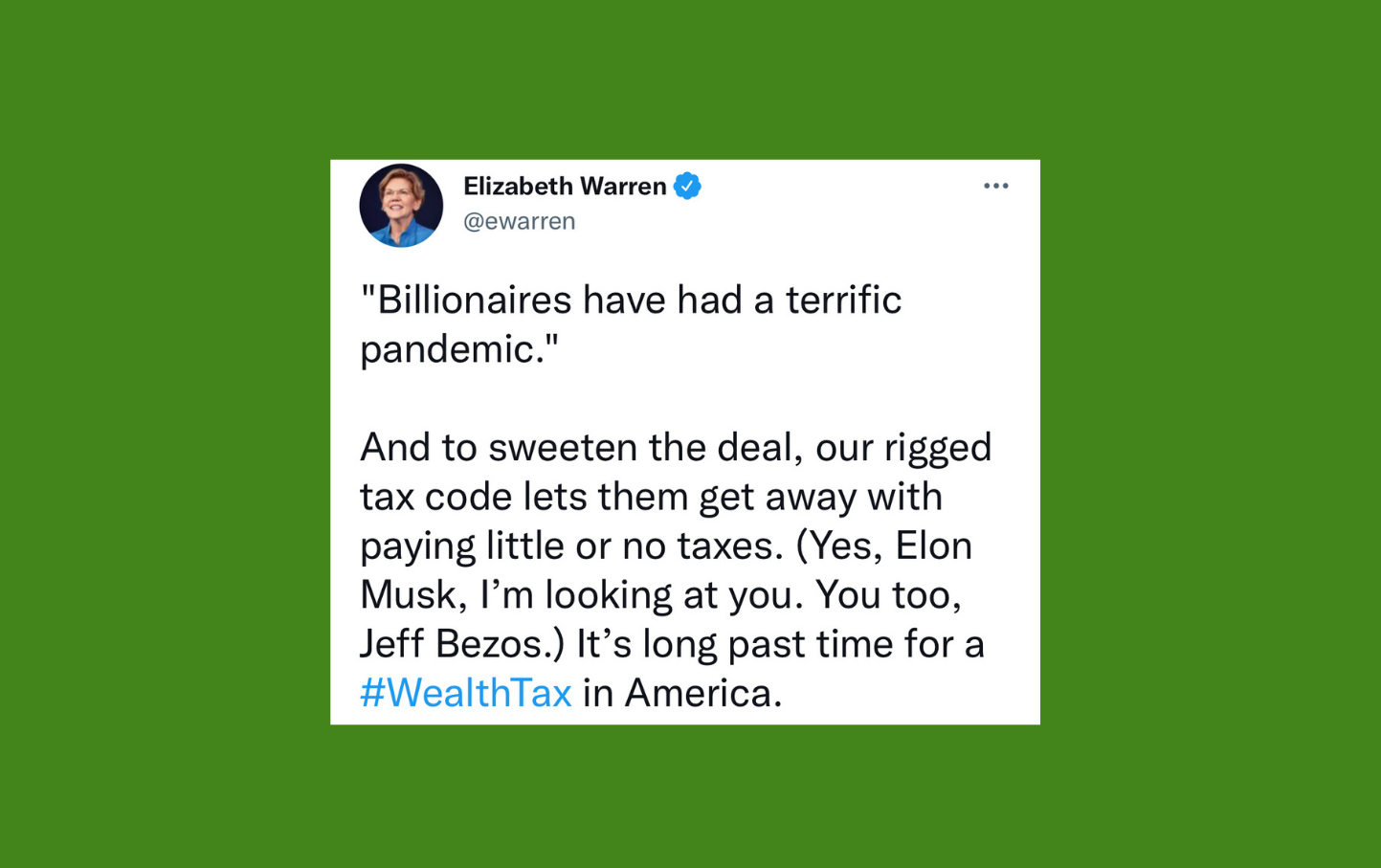One way we hold the powerful accountable is through petitions. So, what happens to your signature after you've signed?
For eight decades Oxfam has been fighting inequality to end poverty and injustice. That means we tackle the root cause of why people aren't thriving—whether by demanding that everyone have clean water, defending the human rights of those who grow the food we eat, or ensuring the ultrawealthy pay their fair share of taxes.
We're committed to dismantling the unequal systems that fuel poverty and injustice—and you, our supporters, make that slow, long-term work possible. Hundreds of thousands of you have signed our petitions over the years, but what happens after you’ve signed? Here are four examples of the power of your signature when we deliver it to decisionmakers on the issues you care about.
Defending the rights of local communities

Gathering the signatures
Over the last two years, Oxfam worked with our allies to stop fossil fuel companies and their friends in Congress from weakening the National Environmental Policy Act (NEPA). NEPA is an environmental law that provides local communities in the US with the ability to weigh in on federally regulated projects that could impact their health and safety.
Delivery
We delivered 21,976 petition signatures from Oxfam supporters to the White House’s Council on Environmental Quality, demanding the protection of NEPA as well as other important environmental justice laws.
Impact
Last summer, the White House proposed a new rule to streamline permitting for clean energy and other projects under NEPA that would require agencies to consider environmental justice and climate change in project reviews. This was an important victory over wealthy polluters and their politician friends who were trying to weaken this bedrock environmental law.
Fighting for a more food secure world

Gathering the signatures
Over the last four years, Oxfam supporters called on the U.S. government to invest in a more sustainable and secure food system for everyone. That meant expanding funding for lifesaving food aid, investing in agriculture and rural development, and addressing the effects of climate change on food systems.
Delivery
Nearly 33,000 Oxfam supporters signed a petition to Congress calling for an ambitious expansion of the Global Food Security Act to better help prevent hunger emergencies, to increase support for smallholder farmers (especially women), and to put more emphasis on climate adaptation efforts.
Impact
Oxfam and our allies were instrumental in achieving significant improvements: the renewal of a stronger Global Food Security Act, increased funding for the U.S. Agency for International Development, and a $5 billion investment in emergency funding for hunger relief in Ukraine.
Ending the human suffering behind the food we eat

Gathering the signatures
In 2019, Oxfam’s Behind the Barcodes campaign evaluated and ranked six of the biggest U.S. food retailers on their policies and practices to see if they provided adequate protections for workers, farmers, and women. Whole Foods was tied at the bottom of the scorecard—with a total score of 3 percent out of 100 percent. Oxfam joined with partners to promote our petition calling on Whole Foods to end the human suffering behind the food sold on their shelves and more than 200,000 people signed.
Delivery
Oxfam and our partners took those signatures and made sure Whole Foods got your message. We stood outside the Whole Foods headquarters in Austin, Texas, with signs, we placed our demands in the local newspaper, and we hired a truck with a video screen to drive around Whole Foods HQ for two days—sharing the stories and faces of the people who help source their food.
Impact
Whole Foods got the message loud and clear. In 2020, the retailer adopted a new Supplier Code of Conduct, which outlines how the company and its suppliers should operate in accordance with human rights principles. They also signed a joint advocacy letter with Oxfam and allies urging the U.S. Labor Department to act on the problem of forced labor in the global fishing industry.
Calling out the effects of extreme inequality

Gathering the signatures
In partnership with coalition groups Oxfam has created and delivered many petitions to Capitol Hill over the years that demanded different actions the government needed to take to reduce economic inequality, including the need for a wealth tax. More than 500,000 people signed our 2022 petition that called for higher taxes on the ultrawealthy to support critical public investments.
Delivery
These petitions were delivered directly to both Congress and the Biden administration on Tax Day—a strong message for economic and racial justice.
Impact
In his 2023 State of the Union address, President Biden proposed an economic agenda in his State of the Union Address calling for higher taxes on billionaires and corporations, echoing the message Oxfam has been spreading for years through our annual inequality report released each year at the World Economic Forum in Davos, Switzerland. Passage of the Inflation Reduction Act also increased taxes on the rich/corporations that closed tax loopholes and increased enforcement to ensure that big corporations and the super- rich pay what they owe.

As we continue advocating on the issues that matter most, we rely on you—our supporters—to make our voice even louder in the halls of power. Without your dedication, none of this would be possible. Together we can make our world a more equal place.



